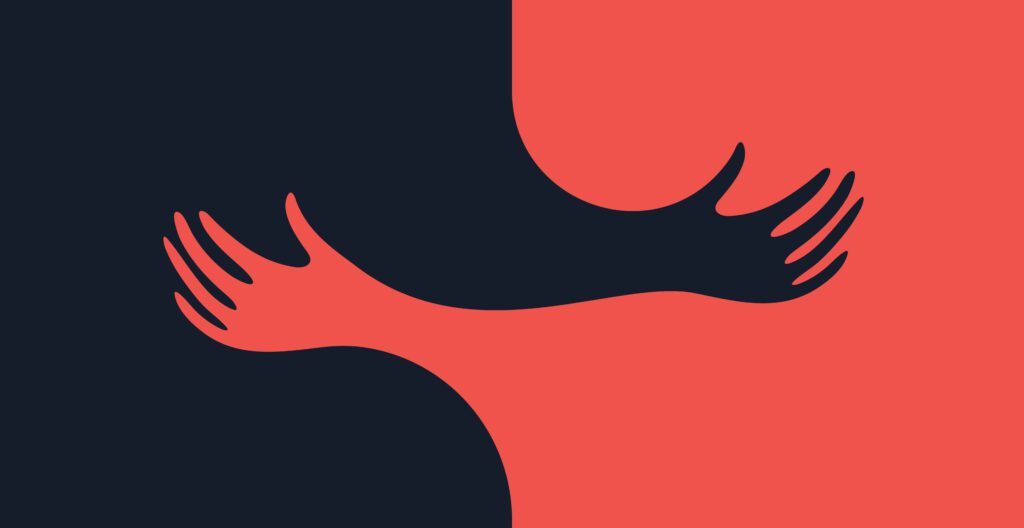by MARY JOYE, LMHC
Codependency, broadly defined, is a loss of self while caring for others. A codependent person will give out until they burn out or become physically ill. Codependency is not a formal disorder included in the Diagnostic and Statistical Manual of the American Psychiatric Association (DSM-5).
One team of researchers (Barbara Oakley, et. al) named the condition “pathological altruism” describing a person who can believe the best about the worst of people. They often get harmed or taken advantage of and become entangled with people who have personality or substance abuse disorders. They are often known as people who are loyal to a fault. Narcissists and sociopaths love to take and are highly attracted to codependents who love to give.
The roots of codependency and narcissism are both born of a subconscious fear of abandonment and using people to “medicate” themselves. Narcissists love to make people feel badly about themselves and codependents love to please people. They both get feel-good chemicals in relationships, but the narcissist gets dopamine from using or manipulating, while the codependent gets theirs from giving and forgiving the user or abuser. It feels like intense love, but it is a trauma bond that is not easily broken. The bond is treated much like an addiction because of the physiological reactivity that creates anxious withdrawals when attempts are made to break the bond.
The roots of codependency are complex. Many were abused children, the scapegoat, or had an alcoholic parent. Some are simply born more empathic and sympathetic. Humans are hardwired simultaneously for connection and fear, and both are meant to keep you safe. When there are mixed messages in the brain, a person can care too much for people who care too little for them. This causes a disconnect with a sense of self. The list below is a guide to codependent traits. Any one of these may impair a person’s life.
- Approval-seeking or people-pleasing
- A need to be needed
- Fear of being alone
- Feeling selfish or guilty for not meeting the needs of others
- Feeling not good enough, or “too much” or “too little”
- Rescuing or fixing behaviors
- Covering up or taking a fall for others
- Giving of finances or other resources to depletion
- Over-responsibility
- False guilt, shame, and eventually anger from self-deprivation
- Finding it difficult to ask for or receive help
- Perfectionism
- Apologizing too much
This is not an exhaustive list, but it is exhausting to read it or do it. We are human beings, not human doings.
Many codependents say, “I can’t take anymore!”
What they mean is, “I can’t give anymore!”
Codependency is like narcissism in reverse. Narcissists are self-absorbed in getting their needs met and codependents are absorbed in meeting the needs of others. Codependency is a form of self-harm because you have allowed others to hurt you. A codependent can begin healing by taking responsibility for the part they played in allowing others to harm them.
When they replace the fear of abandonment with wanting to be wanted instead of needing to be needed, they heal. It is like the difference between saying, “I want a drink” instead of “I need a drink.” The latter is a desperate desire. However, this condition of the heart can be healed through many modalities.
Sheri Fox, a local artist and class presenter, states, “I have become a pro at resilience…When a bone breaks, it becomes stronger…Broken dishes and mirrors can become beautiful mosaics. Some of the best artwork, music, and poetry is created by someone who has been broken. The trick is to allow yourself to break, feel the feelings, cry the tears, explore the shadows, then do what you need to do to return to the light. Never give up!”
Sheri and I will be teaching a class on Valentine’s Day, Feb. 14, titled The Art and Heart of Resilience. The class will be held at Moon Dreamz at 2750 US 17 in Winter Haven from 6:30 to 8:30 p.m. It will explore the neuroscience of codependency and talk about how to gain resilience. For more information, call 863-662-4473.
ABOUT THE AUTHOR: Mary Joye, LMHC, PA, is a licensed mental health counselor with offices in Lakeland and Winter Haven. She holds a Master of Arts in Counseling from Trevecca Nazarene University in Nashville, Tennessee. For more information, visit www.maryjoyecounseling.com.
